Is Cracking your Knuckles Harmful?
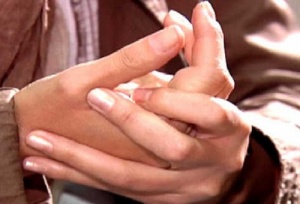
Cracking your knuckles is a very common practice, mostly because we use it to relieve tension. However, different research has shown that it is actually harmful to crack your knuckles. In this article we’ll explain why experts have reached these conclusions.
Why do your knuckles “crack”?
So where does the noise come from when we crack our knuckles, wrists or ankles? It comes from the bursting of bubbles that are in the liquid lining in our joints. Our joints are the point of contact where our bones come together, and they are covered by a thick synovial fluid. When we pop, stretch or bend a finger joint, for example, then the joint separates.
The capsule surrounding the joint is stretched out and enlarges, and this lowers its pressure. When this happens, the dissolved gases in the synovial fluid form bubbles. Then they ‘explode’, producing that distinctive snapping sound.
The gas needs half an hour to dissolve into the liquid. This means that after popping a joint and hearing that ‘crack’, it is advisable to not try it again for another 30 minutes.
Research
So what are the potential risks of this common habit? We should first point out that there hasn’t been too much research on the subject. Attempts have been made to analyze various people who frequently crack their knuckles. The idea was to find out whether there was damage in their joints, such as arthritis or osteoarthritis.
What was discovered during this study was that the fingers showed signs of damage. This damage was either soft tissue injuries or a reduced ability to grab an object. This appears to be due to the quick and repetitive stretching and contracting of the joint ligaments.
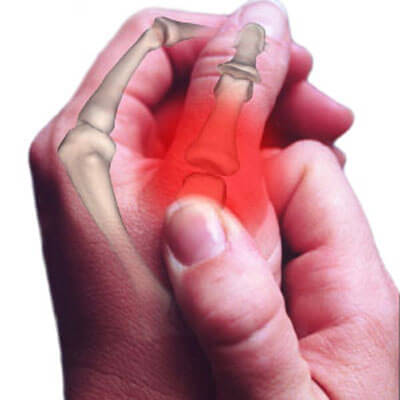
The truth of the matter is that after cracking your knuckles there is a greater degree of mobility. Added to that, there is a sense of relaxation in the joints. For this reason it develops into a daily habit for many people.
On the other hand there are those who often visit a specialist called a chiropractor. His aim is to “rearrange” the bones, or “put them in order” to try to relieve tension. Those who receive this type of treatment indicate that they feel looser and more relaxed. They also say they have less pain and fewer muscle contractions.
Cracking your knuckles causes muscle wasting
Some researchers claim that this is the primary consequence of cracking your knuckles, or other joints. But we should realize that the people who often suffer from this problem are not very physically activ. This is often the only time in the day when they stretch their muscles and joints.
Lack of movement results in poor muscle strength, and it feels like they are worn out or tired. In this way, they start a vicious circle. A person cracks their knuckles just to get that relaxed feeling for a few hours. However, a matter of hours later they’ll need to do it again.
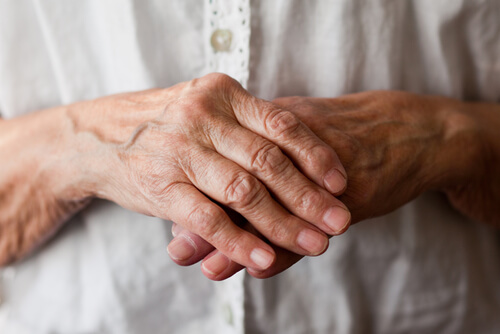
We frequently want to relieve pain or contractions with this movement. We should also bear in mind, however, that for our joints it is somewhat abrupt, insensitive and unnatural. And, contrary to popular opinion, it doesn’t release muscle tension. Rather, it only results in the loss of more synovial fluid, the natural lubricant that prevents friction between bones.
See also: A Diet for Weak Bones and Joints
Recommended exercise
This can lead not only to a breakdown of the joints. It can also lead to a greater possibility of suffering fractured or broken bones. Other results are stiffness, deformation of the injured area, and sharp pain that goes away with rest.
Those who suffer most from this problem are adults over 40 years old. The areas where popping of the joints results in the most breakdown is in the hands (fingers and wrists) and in the neck. The best way to avoid this problem is to exercise, taking into account your age and your physical condition. Walking and swimming are the most recommended forms of exercise.
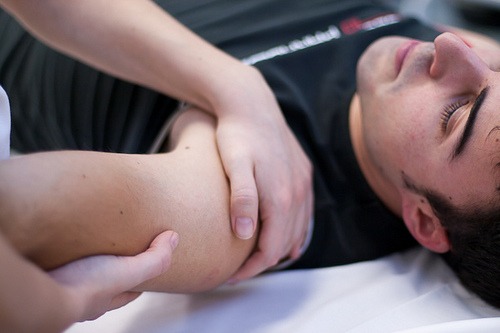
Other highly recommended activities are those that promote muscle strength and flexibility. These activities result in increased endurance without damaging or straining the joints. After reaching 30 years of age, joint tissues begin to lose elasticity. For that reason, it’s even more important to prevent or eliminate bad habits. These habits include physical inactivity and poor posture sitting in front of the computer or TV.
Does cracking your knuckles cause arthritis?
Many people ask if cracking their knuckles or popping their joints can develop into arthritis. If it is a regular, daily habit over the course of many years, then, in theory, the cartilage will be damaged.
One of the best known studies on this topic was made by Dr. Donald Unger. For 60 years he cracked the knuckles of the fingers on his left hand twice a day but did not do so on his right hand. Every year he examined his hands and never found traces of a degenerative disease, even in the hand that he “crunched”.
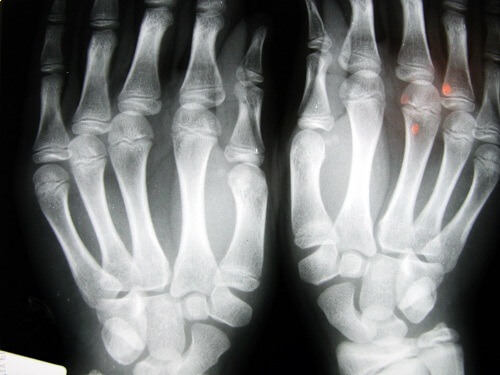
Another study examined 30 elderly people in a nursing home in Los Angeles. Those who had cracked their knuckles their whole life did not have osteoarthritis. In a third study, this time with adults 45 years old in Detroit, a different discovery was made. They found that the main problem was in the loss of strength in their grip. Over 80% of those studied also suffered from swelling in their hands.
For this reason, it is advisable to not constantly crack your knuckles. Having said that, doing so from time to time to release tension isn’t necessarily a bad thing.
So, we hope we’ve answered the often-asked question: “Is cracking your knuckles harmful?” Thanks for reading!
All cited sources were thoroughly reviewed by our team to ensure their quality, reliability, currency, and validity. The bibliography of this article was considered reliable and of academic or scientific accuracy.
- Healthline.com Hypermobile Joints [Online] Available at: www.healthline.com/health/hypermobile-joints
- Healthline.com Understanding Cartilage, Joints, and the Aging Process [Online] Available at: www.healthline.com/health/osteoarthritis/understanding-aging-and-joints
This text is provided for informational purposes only and does not replace consultation with a professional. If in doubt, consult your specialist.








